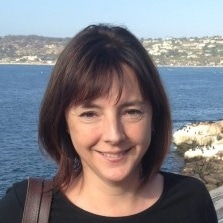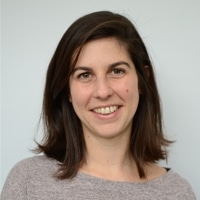Dec 14, 2016 | by The SEEP Network

Read the Technical Brief: Unpaid Care Work
Unpaid care work such as cleaning, cooking, and caring for the young and elderly is critical for the well-being of households, communities and the broader society. However, its value is often under-recognized, and the amount of time spent on unpaid care activities is frequently shared unevenly between women and men. This can exclude women from opportunities for economic gains or access to decent work. Heavy and unequal care responsibilities can also negatively affect women's health, access to education, enjoyment of leisure time, and freedom of mobility and agency, making it a critical piece of the puzzle for promoting women's economic empowerment in market systems programs.
This webinar followed the recent publication of a brief supported by the Leveraging Economic Opportunities (LEO) project, which seeks to enhance USAID programs, projects, and activities focused on creating inclusive market systems. Presenters highlighted recent learning on how to apply methods and tools for measuring unpaid care work, so as to better assess and understand the constraints that it may represent, as well as the results of market systems interventions.
This webinar was hosted by SEEP's Women's Economic Empowerment Working Group.
Thalia Kidder, Oxfam GB
 Thalia currently leads Oxfam's work on women's economic empowerment and care including developing the Rapid Care Analysisexercises for development programmes and advocacy. She has coordinated learning initiatives on Women's Economic Leadership in agricultural markets in East Asia and Latin America, and advised Researching Women's Collective Action, as part of Oxfam's Gendered Enterprise and Markets initiative. Over 17 years, based in both Latin America and the head office in Oxford, UK, her work has also included women workers' rights in the Make Trade Fair campaign Trading Away our Rights, and gender analysis for Oxfam GB's micro-finance programming in Central America and Caribbean, West Africa and South Asia. She has facilitated numerous workshops on "how change happens" and on improving the quality of Oxfam's advisory service. Prior to joining Oxfam, Thalia worked as a community and labor organizer in the USA and Central America. Thalia holds a masters degree in Community and Economic Development from the University of Minnesota, and is a member of the International Association for Feminist Economics (IAFFE).
Thalia currently leads Oxfam's work on women's economic empowerment and care including developing the Rapid Care Analysisexercises for development programmes and advocacy. She has coordinated learning initiatives on Women's Economic Leadership in agricultural markets in East Asia and Latin America, and advised Researching Women's Collective Action, as part of Oxfam's Gendered Enterprise and Markets initiative. Over 17 years, based in both Latin America and the head office in Oxford, UK, her work has also included women workers' rights in the Make Trade Fair campaign Trading Away our Rights, and gender analysis for Oxfam GB's micro-finance programming in Central America and Caribbean, West Africa and South Asia. She has facilitated numerous workshops on "how change happens" and on improving the quality of Oxfam's advisory service. Prior to joining Oxfam, Thalia worked as a community and labor organizer in the USA and Central America. Thalia holds a masters degree in Community and Economic Development from the University of Minnesota, and is a member of the International Association for Feminist Economics (IAFFE).
Emilie Gettliffe, MarketShares Associates
 Emilie is an Associate Consultant with MarketShare Associates (MSA), where she specializes in designing, implementing, monitoring, and evaluating economic empowerment and market systems development initiatives. Furthering MSA's commitment to supporting innovative economic development programming and results measurement, Emilie provides training, capacity building and technical assistance for teams looking to integrate both systems thinking and an empowerment approach to their programming. Recent projects have included conducting an assessment of GIZ's women's economic empowerment programming in the MENA region (including developing instruments and conducting qualitative research on the household level impacts of private sector development initiatives); providing training and technical assistance for the DFID-funded Arab Women's Enterprise Fund, and leading a team to provide capacity building and tool development for the International Youth Foundation. She has led trainings and technical assistance in market systems facilitation and economic empowerment for industry professionals from 16 countries across Africa, the Middle East and Asia, and has supported the facilitation of two global working groups. Before joining MSA, Emilie served as Youth Services Program Administrator for Denver's Office of Economic Development, where she worked with private and non-profit partners to develop and implement financial literacy and skills development programs relevant to high growth sectors in the economy. Her experience designing and facilitating empowerment programs also includes four years of managing academic, employment and leadership development programs for refugee youth. Emilie holds a Master of Science in Local Economic Development from the London School of Economics and an MA in Regional and Urban Policy from Sciences Po, Paris.
Emilie is an Associate Consultant with MarketShare Associates (MSA), where she specializes in designing, implementing, monitoring, and evaluating economic empowerment and market systems development initiatives. Furthering MSA's commitment to supporting innovative economic development programming and results measurement, Emilie provides training, capacity building and technical assistance for teams looking to integrate both systems thinking and an empowerment approach to their programming. Recent projects have included conducting an assessment of GIZ's women's economic empowerment programming in the MENA region (including developing instruments and conducting qualitative research on the household level impacts of private sector development initiatives); providing training and technical assistance for the DFID-funded Arab Women's Enterprise Fund, and leading a team to provide capacity building and tool development for the International Youth Foundation. She has led trainings and technical assistance in market systems facilitation and economic empowerment for industry professionals from 16 countries across Africa, the Middle East and Asia, and has supported the facilitation of two global working groups. Before joining MSA, Emilie served as Youth Services Program Administrator for Denver's Office of Economic Development, where she worked with private and non-profit partners to develop and implement financial literacy and skills development programs relevant to high growth sectors in the economy. Her experience designing and facilitating empowerment programs also includes four years of managing academic, employment and leadership development programs for refugee youth. Emilie holds a Master of Science in Local Economic Development from the London School of Economics and an MA in Regional and Urban Policy from Sciences Po, Paris.
Sarah Gammage, International Center for Research on Women
 Sarah Gammage is a feminist economist with the International Center for Research on Women in Washington DC with more than 25 years of experience working on gender and development in Latin America, Africa and Asia. She has a PhD in Development Economics from the Institute of Social Studies in The Hague and a Masters degree in Economics from the London School of Economics and Political Science. She has worked with and for a number of international and multilateral organizations including the International Institute for Environment and Development, Women ´s Edge, the Economic Commission for Latin America and the Caribbean, the International Labour Organisation and UN Women. She and has written academic and policy research articles on gender and trade, poverty, labor markets, migration and environment. She is an associate editor of Feminist Economics and a member of Women in Informal Employment Globalizing and Organizing. She has also taught a number of graduate and undergraduate courses in gender and development, gender and labor markets, multidimensional poverty analysis, and social protection, at the George Washington University, Washington DC, the Instituto Mora in Mexico City, and the Universidad Central in Santiago, Chile. She is fluent in English and Spanish.
Sarah Gammage is a feminist economist with the International Center for Research on Women in Washington DC with more than 25 years of experience working on gender and development in Latin America, Africa and Asia. She has a PhD in Development Economics from the Institute of Social Studies in The Hague and a Masters degree in Economics from the London School of Economics and Political Science. She has worked with and for a number of international and multilateral organizations including the International Institute for Environment and Development, Women ´s Edge, the Economic Commission for Latin America and the Caribbean, the International Labour Organisation and UN Women. She and has written academic and policy research articles on gender and trade, poverty, labor markets, migration and environment. She is an associate editor of Feminist Economics and a member of Women in Informal Employment Globalizing and Organizing. She has also taught a number of graduate and undergraduate courses in gender and development, gender and labor markets, multidimensional poverty analysis, and social protection, at the George Washington University, Washington DC, the Instituto Mora in Mexico City, and the Universidad Central in Santiago, Chile. She is fluent in English and Spanish.
Mar Maestre, BEAM Exchange/Institute of Development Studies
 Mar Maestre is an international development researcher and practitioner with a focus on private sector, market systems and development. She has over 10 years of professional experience, which combine an international development profile with investment banking professional experience. Mar co-leads BEAM's research agenda and activities and works in the Business and Development Centre at IDS. She uses systems thinking as well as participatory and qualitative methods to understand the how can different market pathways (formal, informal) contribute towards more sustainable and equitable outcomes, such as nutrition or women's empowerment. Her work has focused on market systems and women's economic empowerment, and food systems and nutrition. She recently completed a BEAM funded one-year action research project in partnership with Oxfam GB on facilitating market systems approaches to women's economic empowerment through addressing problematic aspects of unpaid care work.
Mar Maestre is an international development researcher and practitioner with a focus on private sector, market systems and development. She has over 10 years of professional experience, which combine an international development profile with investment banking professional experience. Mar co-leads BEAM's research agenda and activities and works in the Business and Development Centre at IDS. She uses systems thinking as well as participatory and qualitative methods to understand the how can different market pathways (formal, informal) contribute towards more sustainable and equitable outcomes, such as nutrition or women's empowerment. Her work has focused on market systems and women's economic empowerment, and food systems and nutrition. She recently completed a BEAM funded one-year action research project in partnership with Oxfam GB on facilitating market systems approaches to women's economic empowerment through addressing problematic aspects of unpaid care work.
Categories: Market Systems Unpublished Resources Published Blogs/Webinars Webinar Resources WebinarsBlogs

1621 North Kent Street, Ste 900,
Arlington, VA, 22209
P 202.534.1400
F 703.276.1433
Website Photos: © mari matsuri
